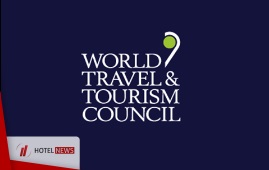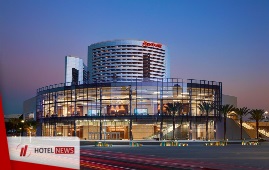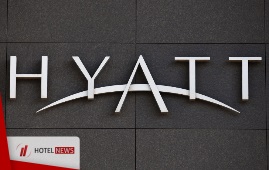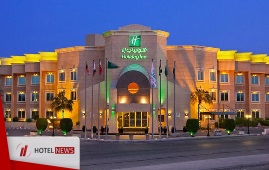
International visitor spending more important to cities than it is to countries, nine out of 10 top fastest growing cities in past decade are in emerging and developing countries and cities over reliant on domestic or international demand are more exposed to economic and geopolitical risks. The World Travel & Tourism Council (WTTC), which represents the global Travel & Tourism private sector, today released its comprehensive Cities Report for 2019. The report focuses on 73 major tourism city destinations, providing estimates of the GDP and employment directly generated by the Travel & Tourism sector, and highlights successful initiatives, strategies and policies that have been implemented. With more than half (55%) of the world’s population living in urban areas – due to increase to 68% over the next 30 years – cities have become the hubs for global economic growth and innovation, while also attracting more people who want to live and do business. The report reveals these 73 cities account for $691 billion in direct Travel & Tourism GDP, which represents 25% of the sector’s direct global GDP and directly accounts for over 17 million jobs. Additionally, in 2018, direct Travel & Tourism GDP across the cities, grew by 3.6%, above the overall city economy growth of 3.0%. The top 10 largest cities for direct Travel & Tourism contribution in 2018 offer diverse geographic representation, with cities such Shanghai, Paris, and Orlando all sitting in the top five. International visitor spending is often more important to cities than it is to countries overall. For example, Riyadh had international visitor spending accounting for 86% of total spending, while in Saudi Arabia as a whole, international visitor spending accounts for 45% of total spending. International visitors accounted for almost half (45%) of tourism spending across the 73 cities in the study, and an average spend of 29% for economies worldwide. Revenues from international visitors, will in some cases pay for city infrastructure projects, the provision of public workers and services that improve the quality of life for residents. For example, in London, international visitors spent $17.5 billion in 2018, nearly twice as much as the operating costs of Transport for London, and near four times the amount than the total expenditure for policing and crime within the city. Furthermore, international visitors in New York spent $21 billion last year, which is 3.8 times higher than the costs of the NYPD, and nearly twice the budget for city schools. The report also reveals all but one of the 10 global cities with the highest direct Travel & Tourism growth over the past decade, are in emerging and developing economies such as China, Turkey and the Philippines. Infrastructure development and prioritisation of tourism, has been a key driver of Travel & Tourism growth. The projected trends for 2018-2028 continue in this way, with all 10 coming from emerging and developing countries such as Morocco, India, Vietnam and Indonesia. According to the report, cities with an overreliance on domestic or international demand are more exposed to economic and geopolitical shocks. Some large Brazilian and Chinese cities which are highly reliant on domestic demand, could be exposed to changes in the domestic economy. On the other hand, cities which are more reliant on international demand and/or particular source markets, may be vulnerable to external disruptions. It also highlights several cities which demonstrate a more balanced split between domestic and international demand, including Cancún, Munich, Cairo and New York, which despite their geographical differences, all maintain a near perfect 50:50 split. Furthermore, a high degree of seasonality can also, at times put pressure on infrastructure, due to the heightened demand during a narrow timeframe. WTTC President & CEO, Gloria Guevara said: “Cities are an essential part of the Travel & Tourism sector, both culturally and economically, and their significance is set to increase over time. Achieving sustainable growth in cities requires reaching far beyond the sector itself, and into the broader urban agenda. As we go forward, the Travel & Tourism sector must be integrated into all aspects of a cities’ planning agenda. To drive true economic impact that can translate seamlessly into social benefits, a city must engage with all stakeholders, across the public and private sector, in order to establish the cities of the future. There is an opportunity to create long-term, sustainable change that can create real change for communities, especially within cities.” Read the WTTC City Travel & Tourism Impact Report 2019 here.
Create: Dec 24, 2019 Edit: Dec 24, 2019 International News
News about InterContinental Hotel Group - IHGInterContinental Hotels Group announced that it will bring two hotels to Shanghai Pudong International Airport’s latest Terminal Complex, this means one of the world’s busiest airports will expect its first international branded hotels for the first time. It’s also the first time that the high-profile to-be-built complex reveals its details: four companies including IHG, Shanghai Yukong Hotel Management Co. Ltd., commercial developer Excellence Group and environmental-friendly facility provider MASTECK, signed an agreement on Monday with Shanghai International Airport Co., Ltd. They will work together to operate the complex, which consists of hotels, retails and offices. The two hotels – InterContinental Shanghai Pudong Airport and Holiday Inn Shanghai Pudong Airport, both within a few minutes’ walk distance from the arrival hall, are expected to open in 2024. Targeting luxury and mainstream segments respectively, they will be able to offer different options and world-class true hospitality experiences to more travellers from all over the world. InterContinental Hotels & Resorts is the world’s largest luxury hotel brand with over 200 hotels globally and has been a pioneer in international luxury travel for more than 70 years, providing fascinating experiences for guests. The Holiday Inn brand, also the first IHG brand that entered China in 1984, has helped millions of travellers around the world discover the joy of travel. Jolyon Bulley, Chief Executive Officer, IHG Greater China, said: “IHG has been committed to the China market for more than 35 years, with our brands widely recognised among Chinese consumers for our global expertise and profound China insights. The Shanghai Pudong International Airport is one of world’s leading international airports, linking the gateway city Shanghai to the world. We are proud to be a part of the complex project, bringing two iconic brands as a flagship combo to a Chinese gateway airport. We believe that under the great collaboration of all parties, the Terminal Complex will become a name card of Shanghai and a model of modern airport complex worldwide.” Jia Ruijun, Vice President of Shanghai Airport Authority, Chairman of Shanghai International Airport Co., Ltd., said: “Shanghai Pudong International Airport have become made into ‘the Club’ of world's largest hub airports with more than 74 million throughputs annually, covering an airline network around the world. The airport strives for high-quality development and good business performance while ensuring safety of travellers and providing good services. We are delighted to introduce IHG’s well-known InterContinental and Holiday Inn brands that boast international branded standard to meet the growing demands from more travellers. Seen as the extended VIP lounge of Shanghai Pudong International Airport, the two hotels will also improve our competitive advantage and fuel the delivery of our strategy to build an international hub airport.” Due to the high convenience, airport hotels have enjoyed a rising demand from travellers who catch an early, late or connecting flight. After the two IHG hotels open, it is expected to see greater synergy generated by all the business sectors within the airport’s complex, meeting needs of accommodation, consumption, MICE and office space. As an increasing number of international and national conventions and exhibitions are expected to be held in Yangtze River Delta including Shanghai, the complex will further facilitate the development of Pudong Aviation Town as well as the demonstration plot of aviation economy.
Create: Dec 23, 2019 Edit: Dec 23, 2019 International News
Marriott International, Inc. (NASDAQ: MAR) announced that it has completed its acquisition of Elegant Hotels Group plc. The announcement from Elegant and International Hotel Licensing Company S.à r.l. was issued over London’s Regulatory News Service earlier today. Full text can be found below: On 18 October 2019, the boards of Elegant Hotels Group plc (“Elegant”) and International Hotel Licensing Company S.à r.l. (“IHLC”), a wholly-owned indirect subsidiary of Marriott International, Inc. (“Marriott“), announced that they had reached agreement on the terms of a recommended all cash offer to be made by IHLC for the entire issued and to be issued ordinary share capital of Elegant (the “Acquisition“). On 6 December 2019, Elegant and Marriott announced that the Court had sanctioned the Scheme. Elegant and Marriott are pleased to announce that the Court Order has been delivered to the Registrar of Companies today and accordingly the Scheme has now become effective, in accordance with its terms. Elegant is now a wholly owned subsidiary of IHLC. Scheme Shareholders on the register of members of the Company at the Scheme Record Time, being 8.00 p.m. on 6 December 2019, will receive 110 pence in cash for each Scheme Share. Settlement of the cash consideration due to Scheme Shareholders will occur within 14 days. Dealings in Elegant Shares on AIM were suspended with effect from 7.30 a.m. today. The cancellation of trading of Elegant Shares on AIM is expected to take place at 7.00 a.m. on 10 December 2019. As a result of the Scheme having become Effective, share certificates in respect of the Elegant Shares have ceased to be valid documents of title and entitlements to Elegant Shares held in uncertificated form in CREST are being cancelled. Capitalised terms used but not defined in this announcement have the meanings given to them in the Scheme Document.
Create: Dec 10, 2019 Edit: Dec 10, 2019 International News
Hyatt Hotels Corporation announced that more than 20 new luxury hotels and resorts are expected to open worldwide by the end of 2020, boosting Hyatt’s luxury portfolio. The additions include new properties under the Park Hyatt, Andaz, Alila, Grand Hyatt, Miraval and The Unbound Collection by Hyatt brands. As part of this global expansion, The Unbound Collection by Hyatt brand is seeing its strongest growth to date in Europe. The brand is known for an exceptional portfolio of true historic gems as well as contemporary properties with a fascinating past. Each hotel within the collection provides one-of-a-kind experiences attracting independently minded travelers looking for the extraordinary. Upcoming hotels include distinctive properties like Great Scotland Yard, the location of London’s former metropolitan police headquarters, expected to open December 9; and the majestic Hôtel du Palais Biarritz, the former imperial residence of Napoleon III, which is due to reopen in June 2020 after an extensive renovation. “With our growth acceleration in the luxury segment, we will have the opportunity to care for more travelers around the globe through a range of differentiated high-end experiences,” said Mark Vondrasek, chief commercial officer, Hyatt. “We’re excited to expand into new markets and enhance the global footprint of our brands, giving our guests and members additional ways to connect with our luxury offerings in places where they want to be.” Celebrating its 40th anniversary in 2020, the Park Hyatt brand is also a key contributor to Hyatt’s luxury portfolio growth, with five Park Hyatt hotels expected to open by 2020 in Doha, Qatar; Jakarta, Indonesia; Niseko, Japan; Suzhou, China; and Auckland, New Zealand. With its world-renowned artwork, sophisticated design, and sought-after dining experiences – with several Michelin-starred restaurants, now totaling three in Europe – the brand caters to discerning travelers who appreciate understated luxury and an intimate, residential stay. Throughout the decades, Park Hyatt hotels have delivered immersive experiences, creating a refined home away from home for guests. “Across Europe, Africa, the Middle East, as well as Southwest Asia, luxury properties account for over a third (35 percent) of our portfolio,” said Peter Fulton, group president – EAME SWA, Hyatt. “Europe in particular, with its unique and historic architecture, represents a natural home for The Unbound Collection by Hyatt brand, and as we expand with our lifestyle and independent brands, we are confident our new offerings will cater to high-end travelers who are seeking an unprecedented stay.” Other announcements include the expansion of the Alila brand, which delivers world-class service and crafts rare and intimate experiences for its guests, with three luxury resorts expected to open in Switzerland, Malaysia and Oman. In addition, six Andaz branded luxury lifestyle properties are due to open in Dubai, UAE; Prague, Czech Republic; Bali, Indonesia; Shenzhen and Xiamen in China; and Palm Springs, California, offering distinctively local experiences and creative design within open, barrier-free spaces. The Grand Hyatt brand is also set to continue to steadily grow with new openings in Hefei and the Shenzhou Peninsula in China, Kuwait, Gurgaon in India, Jeju in South Korea, and Nashville, Tennessee, along with the first Grand Hyatt hotel in Al Khobar, Saudi Arabia. Known for its bold and vibrant architecture and welcoming service, Hyatt’s largest luxury brand, Grand Hyatt, celebrates the iconic in small details and magnificent moments. Planned Alila openings Alila Dalit Bay in Malaysia (2020) Alila Hinu Bay in Oman (2020) Alila La Gruyère in Switzerland (2023) Planned/Recent Andaz openings Andaz Dubai The Palm (2019)–will mark the brand’s entry into Dubai Andaz Bali (2020)–will mark the brand’s entry into Indonesia Andaz Shenzhen in China (2020) Andaz Xiamen in China (2020) Andaz Palm Springs in the U.S. (2020) Andaz Prague (2022)–will mark first Hyatt hotel in the Czech Republic Andaz Seoul Gangnam in South Korea (opened 2019) Planned/Recent Grand Hyatt openings Grand Hyatt Hefei in China (2019) Grand Hyatt Al Khobar (2020)–will mark the brand’s entry into the Kingdom of Saudi Arabia Grand Hyatt Kuwait (2020)–will mark the brand’s entry into Kuwait Grand Hyatt Gurgaon in India (2020) Grand Hyatt Jeju in South Korea (2020)–will mark largest Grand Hyatt hotel in Asia Pacific Grand Hyatt Nashville in the US (2020)–will mark the brand’s entry into Tennessee Grand Hyatt Shenzhou Peninsula in China (2020) Grand Hyatt at SFO–only on-airport hotel at SFO (opened 2019) Planned/Recent Park Hyatt openings Park Hyatt Doha (2019)–will mark the brand’s entry into Qatar Park Hyatt Auckland (2020)–will mark the brand’s entry into New Zealand Park Hyatt Jakarta (2020)–will mark the brand’s entry into Indonesia Park Hyatt Niseko Hanazono in Japan (2020) Park Hyatt Suzhou in China (2020) Park Hyatt Kyoto in Japan (opened 2019) Planned The Unbound Collection by Hyatt openings Great Scotland Yard (2019)–will mark the brand’s entry into the UK Hotel du Palais Biarritz in France (2020) Planned Miraval openings Miraval Berkshires Resort and Spa in the US (2020)—will mark the brand’s entry into Massachusetts
Create: Dec 8, 2019 Edit: Dec 8, 2019 International News
Since launching in 2018 campaigns have delivered increases of an average of up to 30% for over 50 tourism boards globally, each strategic campaign enables Tourism Boards to navigate the highly fragmented landscape of the global travel industry, targeting specific demographics in desired source markets. Hotelbeds has confirmed the successful launch of an industry-first B2B service for destination marketing organizations (DMOs) globally to drive incremental tourism arrivals. Leveraging the company’s technology, booking platform, and relationships with hoteliers and B2B travel buyers globally, Hotelbeds has to date already worked with over 50 tourism boards from around the world. The result has been to increase room nights for target destinations by up to 30% on average – plus improving revenue performance – by attracting additional low- and shoulder-season visitors from international and domestic source markets globally. Partner destinations receive access to the over 60,000 B2B travel trade buyers – such as retail travel agents, tour operators, airlines, and points redemption clients – who together make over 1.5 billion accommodation searches per day via Hotelbeds. Due to the international reach of Hotelbeds – present in over 140 source markets globally, with the fast-growing Chinese market already the fourth biggest globally for the company – destination partners also benefit from receiving more international and long-haul arrivals. Bookings from international and long-haul source markets in turn deliver high-value customers who spend more in destination, stay longer, cancel less, return more often and book farther out than typical direct to consumer customer profiles (which tend to be highly domestic). Gareth Matthews, Director of Marketing & Communications at Hotelbeds, stated: “Our whole purpose as a travel distributor is to drive incremental high-value bookings for hotels from non-competing, hard to reach B2B travel trade sources such as retail travel agents and tour operators. So we thought why not also do the same for destinations? No one else is offering destination marketing boards such a comprehensive set of opportunities that allows them to easily access the distribution power of the world’s travel trade. We launched the service at a global level last year and I´m pleased to confirm that our knowledge, experience and infrastructure is already delivering, on average, increases in incoming visitor paxes of 30% for our destination partners.” Joseph Sheller, Head of Destination Marketing, commented, “I am proud to say that our Hotelbeds Destination Marketing service is in high demand on a global level. We pride ourselves on delivering highly tangible ROI for our partners and measure our success by the incremental year-over-year increase in room nights/PAX produced by the campaigns, as well as the total overall economic impact. What destination doesn´t want incremental visitors that also stay longer and spend more, especially during the low- and shoulder-seasons? As the first B2B travel distributor to launch this service, we are truly revolutionizing the landscape of destination marketing!”
Create: Dec 7, 2019 Edit: Dec 7, 2019 International News
The thinking and analyses of benchmarking continues to dominate hotelier discussion, and the industry’s most nimble minds are not satisfied the terminology, emphasis and focus have reached any type of apex. MANCHESTER, England—Hoteliers are in no doubt benchmarking has been one of the major, if not the most major, catalysts of the last decade helping fuel hotel performance, and the data is only getting better and more involved, according to sources. Now hoteliers are considering how benchmarking might change as the industry reaches what many consider the end of a cycle. Speakers on a panel at the recent Annual Hotel Conference titled “Sitting on the bench or pressing it” indicated one goal is the analyses of rooms benchmarking, not just around the primary sale, but all the way through the profit and loss account. That changes depending on the operating business model, sources said. “At the core is the transparency of data, and doing something with it. It is output rather than the input,” said Jonathan Walker, managing director of the 40-room No. 15 Great Pulteney in Bath, England, and a former director of hotel performance and operations support, Europe, at InterContinental Hotels Group. “It is not cash from benchmarking, but the cash you are missing if you do not have it, and the ability to articulate that to stakeholders,” said Kym Kapadia, chief commercial officer at Aprirose Real Estate Investment, which in 2017 bought from Bain Capital the 26-asset QHotel portfolio for £525 million (at the time equivalent to $706 million). “We’re seeing a shift in relevance of the historic data. It is now about looking ahead, monitoring pick-up and pace and about the business on the books,” said Steven Cote, product manager at Forward STAR, a division of STR, the parent company of Hotel News Now. Nick Turner, managing director at Owners Management Group International, a hotel-management company in the lifestyle and boutique space, said even more importance has to be placed on getting the competitive set right. “Otherwise it is rubbish in and rubbish out. It has to be right on an asset-by-asset basis, and it starts with the right comp set,” Turner said. “No one understands the business better than the GM on the ground, and it takes analysis and experience and talking to people,” he added. Sources said hoteliers now are focused on analyses of revenue-generation indices, comparing individual revenue per available room with that of the comp set and seeing how that metric changes for individual hotels when the market changes. Kapadia said keeping on top of the numbers has changed enormously as the number and range of stakeholders have increased. “It can be subjective in terms of the numbers of layers of ownerships and their opinion, and you have to look at the unemotional numbers,” she said. She said hoteliers still need to understand what they are and where they want to go before they get deep into the arithmetic. “Learn from best in class and overtake them, and remember there always are a cycle and an exit,” Kapadia said. “It is so important to have feasibility on any acquisition and investment. Yes, the forward-looking data is huge for the cycle, business plan and exit. Who knows, but with some insight and rationality, you’ll have a good guess.” Hoteliers who are not part of large portfolios or multi-brand platforms still are being nimble in what data they want and how to get it. “You have to have a vision as to where the product will be pitched,” Walker said. “We do a lot of research on product we might not know. We look at location, style, size, the obvious things, but also a few extra things … the quality side, being aware and curious as to what else is happening in your market.” Unlocking potential Hoteliers need to keep up to date, as third parties certainly are doing so, Walker said. “Last year, we were looking to open a hotel in Bristol, and we had a really awkward two-hour meeting, as (the other party) knew far more than we did. Benchmarking has to be ingrained, as a deal will only be passed to the bank if all the steps are passed,” he said. Cote said third-party collaboration of data and aggregating portfolios against one can provide more comfortability. One problem with performance data is the obsession with RevPAR. “All is more advanced in the rooms product. There is a need to be more clever in the rest of the building,” Aprirose’s Kapadia said. Cote said taking meaningful information from net RevPAR, with distribution costs subtracted from rooms revenue, is difficult in a country such as the United Kingdom, where “about 70% of revenue comes in from rooms … and there is no definite statement as to what net RevPAR is.” The meaning of net RevPAR also needs standardization, Cote said. “You have to have a benchmark, which is why it is currently more blurry due to the variation of definitions. Someone has to take a stance. After all, someone must have come up with RevPAR? I do not know who or when that happened?” Kapadia said. Turner added the industry has to continue to be supportive of the data and the terminology of it, and that thinking has to be adopted by universities and hotel schools. Walker said he does not believe the franchise model will change quickly because it remains very focused on RevPAR. Paralysis Sources also said there is a danger of “analysis paralysis” due to there being perhaps too many tools to look at. “Who is to say we should at any time be happy with our current state? And then how do we turn it into an actionable strategy, especially when you have multiple stakeholders to talk to?” Kapadia added. Owners Management Group International’s Turner, who also manages the Laura Ashley hotel and tearoom brand, said metrics on leisure clubs—membership rates, attrition, cost of acquisitions—and F&B remain in their infancy, if they exist at all. He added one shortcoming is that this operational excellence often comes at the expense of creativity and communicating with customers. “A broad view is necessary, on consumer data not historical,” Turner said. “I know what is good or not good for my business. It’s easy to look at the stats and the relevant costs, but it is not good enough only to look at the lowest costs. (One also must look at) the quality and what is right for the guest,” No. 15 Great Pulteney’s Walker said.
Create: Dec 3, 2019 Edit: Dec 3, 2019 International News
Vancouver-based REIT American Hotel Income Properties completed its sale of 45 economy assets and agreed to purchase 12 premium-branded ones. The move aligns the company’s structure closer to U.S. REITs and better presents itself to investors, executives said. VANCOUVER, British Columbia—Canadian real estate investment fund American Hotel Income Properties on 28 November agreed to acquire a portfolio of 12 premium-branded hotels in the U.S. for $191 million. The move sees the Vancouver-based AHIP move further up the segment ladder and concentrate on higher margins and yielding. With this announcement, the company also said it closed its previously announced sale of a 45-hotel economy portfolio to an affiliate of Vukota Capital Management for total gross proceeds of $215.5 million. The latest deal caps off a period of restructuring for AHIP. In April 2018, the company transferred management of all of its portfolio, at the time 115 hotels, to Texas-based Aimbridge Hospitality, as part of its strategy to become a pure owner. Then in July 2019, AHIP agreed to the deal with VCM. The VCM deal, which closed on 28 November, saw AHIP exit the economy segment and funded its latest acquisition, which comprises 12 hotels and 1,203 rooms in the U.S., in Michigan, Minnesota, North Dakota, Pennsylvania and Texas. The largest hotel by room count is the 120-room Courtyard St. Paul Woodbury in Minneapolis. Seven assets are managed by Marriott International, four by Hilton and one by InterContinental Hotels & Resorts. Aimbridge merged with Interstate Hotels & Resorts on 25 October, although between the AHIP-Aimbridge deal and the Aimbridge-Interstate merger, AHIP renegotiated its management-fee structure with Aimbridge. In an investor update released in coordination with the agreed-to buy and completed sale, AHIP said the new management-fee structure will “strengthen (its) margins, cash flow and growth potential over the next several years.” Expected to close by the end of the month, the 12-hotel buy now gives AHIP 79 assets and 8,887 rooms in its premium-brand portfolio. Jamie Kokoska, AHIP’s director of investor relations, said the completion of the sale of its 45 economy hotels alongside its new acquisition has transformed AHIP into a “pure-play” premium-branded hotel company. The 12 hotels have been acquired at an “approximate 8% capitalization rate” and, with all built in the last five years, at below replacement cost, she said. “By selling our economy-lodging portfolio, our business has become more streamlined and efficient and allows us to focus solely on driving growth from our growing portfolio of premium-branded hotels,” Kokoska said. “We believe these transactions will also better align our company with other publicly traded U.S. hotel REITs and hopefully make our business more easy to understand for investors. Ultimately, we hope our trading multiples will more similarly reflect those of the broader hotel REIT sector,” she said. Segment shift AHIP CEO John O’Neill said in the news release announcing the deal that the “mostly all-suite” deal is the final chapter that completes “a significant component of our 2019 capital recycling program.” Kokoska said Aimbridge will likewise manage the new portfolio. Troy MacLean, equity research analyst at Toronto-based BMO Capital Markets, agreed the deal moves AHIP farther up the segment scale. “The sale and new purchase is less about a price-point strategy than about becoming more of a pure play. They like select-service hotels,” MacLean said. The hotel stock, both the bought and the sold assets, also is different in market and format, MacLean said, with the latest deal being likely an economically safer platform and one providing higher margins. “The rail hotels were in tertiary markets with basically one buyer. When the rail business declined, they really suffered,” MacLean said, referring to the assets in the VCM deal and their associated rail crew-lodging contracts that were also transferred. Kokoska said the new buy, due to close by the end of the year, continues AHIP’s strategic decision to focus on higher-quality, select-service premium-branded hotels that inherently have higher average daily rates. The focus will remain primarily on the upper midscale to upper-upscale chain scales, mostly with brands offering suites or extended-stay accommodations located mostly in metropolitan secondary markets outside of the Top 25 in the U.S. “Another target is to be in markets near multiple demand generators such as hospitals, universities, business parks and stadiums. We believe these kinds of hotels have the ability to provide strong, sustainable returns, while also being defensive in changing market conditions,” Kokoska said. “These kinds of hotels do often generate higher margins due to less frequent guestroom turnover and lower operating expenses,” she said. As of 27 November, AHIP’s market capitalization stood at $505 million Canadian dollars ($380.2 million), according to the investor update. That update also showed the revenue-per-available-room rise across AHIP’s portfolio, even with inflation being taken into account, with that metric in 2013, when its assets were all in the economy segment, being $46.15; in September of this year, excluding the 45-asset economy-segment sale, being $76.80, and for just the 12 agreed-to hotels—although the rest of the portfolio is not included in the calculation—$97. The average room count also has increased in the last six years from 80 to 115, with the 12 new hotels averaging 100 rooms. Despite being listed on the Toronto Stock Exchange, Kokoska said AHIP still has no immediate plans to open its wallet for Canadian assets.
Create: Dec 3, 2019 Edit: Dec 3, 2019 International News
Create: Oct 31, 2019 Edit: Jan 21, 2020 TV

The recent signing of Hampton by Hilton Sandton Grayston also marks the African debut for Hampton by Hilton. Hilton recently announced the signing of Hampton by Hilton Sandton Grayston, which marks the first for the brand in Africa. That’s not all it marks, however, with the agreement also meaning that the company now has reached the 100-hotel-milestone as far as properties trading or under development on the African continent. It is truly a year of many 100s for Hilton, which is celebrating its 100th birthday. “With this being our 100th year, reaching the milestone of 100 hotels allows us to reflect on our rich legacy of pioneering tourism on the African continent but also to look to the future,” Patrick Fitzgibbon, Senior Vice President, Development, Europe, Middle East & Africa, Hilton said. “We continue to step up the pace of our growth, especially in the mid-market segment which presents a tremendous opportunity as evidenced by the rapid expansion of Hilton Garden Inn on the continent since its debut in 2016.” Hilton’s agreements in Africa Recently, Hilton signed a franchise agreement with Afrirent Pty through its Indalo Hotels & Leisure subsidiary, a level one Black Economic Empowerment (BEE) third party operating company. Indalo will be the operator of the 158-room Hampton by Hilton hotel in Sandton, which is the financial capital of South Africa. This mid-market property will join Hilton’s flagship upscale Hilton Sandton, offering additional choice for travellers to the district commonly known as ‘Africa’s richest Square Mile’. Construction is scheduled to begin at the site on Grayston Drive in early 2020 with first guests set to be welcomed by mid-2021. Hilton Garden Inn is crucial to the company’s footprint in Africa, with the brand having operational hotels in six African markets and a further ten under development. Hampton by Hilton is expected to compliment this growth and provide owners and customers with greater choice. Other noteworthy Hilton properties in Africa There is, of course, more to Hilton’s growth story in the African market. 2019 has seen Hilton open four properties in Africa, entering three new markets whilst also further strengthening its multi-brand pipeline. Highlights include: Bringing its lifestyle Canopy by Hilton brand to Africa, through the signing of Canopy by Hilton Cape Town Longkloof Confirming the signing of two landmark flagship Hilton Hotels & Resorts properties in Uganda and DR Congo, the Hilton Kampala and Hilton Kinshasa. Accelerating its growth in the focused service segment, opening Hilton Garden Inn hotels in three new countries: Hilton Garden Inn Gaborone, Botswana Hilton Garden Inn Kampala, Uganda Hilton Garden Inn Mbabane, Eswatini Continuing to establish its footprint in Morocco with the opening of Hilton Tanger Al Houara Golf Resort & Spa with the Hilton Taghazout Bay due to open in 2020
Create: Oct 26, 2019 Edit: Nov 3, 2019 International News
An organization structure where elements of a system are united and consolidated under a single center. This type of organization can be applied to computer systems, networks, employees, accounting operations, and business facilities, as well. Centralization arose in the 1980s, when computers became able to establish better control in organization departments. The advantages of centralization are: increased organization of a system, cost reduction due to standardization of equipment and procedures, and increased efficiency. The downside is inflexibility and slow implementation of structural changes. Hotel reservation systems are sometimes made for smaller individual hotels, while for hotel chains they have centralized reservation facilities. When several reservation systems should be integrated, their infrastructure could be organized according to the decentralization principles.
Create: Oct 22, 2019 Edit: Oct 23, 2019 Hotel Management
The hospitality group has signed an agreement with real estate company RIKAZ Properties Intercontinental Hotels Group will be developing its fourth Holiday Inn hotel in Al Khobar — Holiday Inn Al Khobar King Fahd Road — after signing a management agreement with real estate company RIKAZ Properties. Expected to open in January 2021, the 140-key property will feature an outdoor pool, a lobby lounge, food & beverage outlets and a gymnasium. Speaking about the new property Pascal Gauvin, MD, India, Middle East & Africa, IHG said, “We are delighted to sign an agreement with RIKAZ Properties for Holiday Inn Al Khobar King Fahd Road and strengthen our mainstream offering in the Kingdom of Saudi Arabia. We have a strong legacy in the Kingdom and are committed to leveraging the growth opportunities that Vision 2030 presents by expanding our presence across the country through our portfolio of global brands. With a number of recent signings in Saudi Arabia, across our brands such as Holiday Inn, voco and Crowne Plaza, we are growing our presence in key cities and gearing up to cater to the needs of diverse guest profiles expected to visit the country in the coming years.”Earlier this year the hospitality group signed two Holiday Inn properties in Madinah and Jeddah. “We are delighted to be partnering with IHG for our new venture. We have witnessed strong tourism figures and hotel occupancy rates in Saudi Arabia. Tourism is a focal point under the government’s vision 2030 - according to MAS (Tourism Research & Information Centre), the number of international trips made to Saudi Arabia is estimated to increase from 18 million in 2015 to 25.8 million in 2020. The Holiday Inn brand has an international appeal and we are confident that this latest hotel will perform successfully and cater to the increasing demand for midscale accommodation in the country,” said Khalid Al Gahtani, Chairman, RIKAZ Properties. IHG currently operates 92 hotels across 7 brands in the Middle East, including: InterContinental, Crowne Plaza, Holiday Inn, Holiday Inn Express, Staybridge Suites, voco and Six Senses Hotels Resorts with a further 41 in the development pipeline due to open within the next three to five years.
Create: Sep 8, 2019 Edit: Sep 14, 2019 International News
Saudi Arabia and the UAE are leading the field in the development of new hotels There are close to 200 hotels at the design stage in the GCC, according to statistics revealed by intelligence platform ProTenders. Data up to 1 July, 2019, shows there are 196 hotels at the design stage across the Gulf, insight from construction intelligence business ProTenders revealed. The total value of the GCC hotel market, which includes projects at the planning, design, tender and construction stage, is $501.8bn (AED1.8tn), sister publication Commercial Interior Design revealed. Saudi Arabia and the UAE are leading the field in the development of new hotels, as both countries continue to prioritise tourism as a means of supporting economic diversification. It was revealed in August that five hotel chains are due to be selected by the Qiddiya Investment Company as part of the hospitality offering of Saudi Arabia’s entertainment gigaproject Qiddiya. The announcement came when the company, a subsidiary of the Public Investment Fund, unveiled details of the Six Flags theme park that will be built in 2023. In the UAE, a significant number of hotels are being developed in the run-up to Expo 2020 Dubai, which opens its doors in approximately 13 months.
Create: Sep 7, 2019 Edit: Sep 14, 2019 International News
